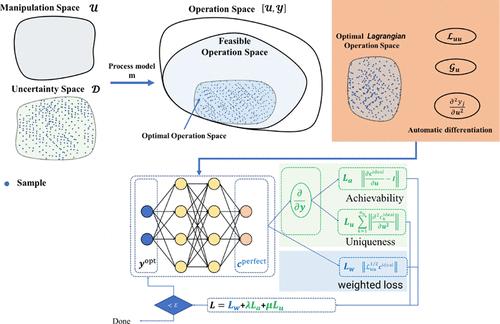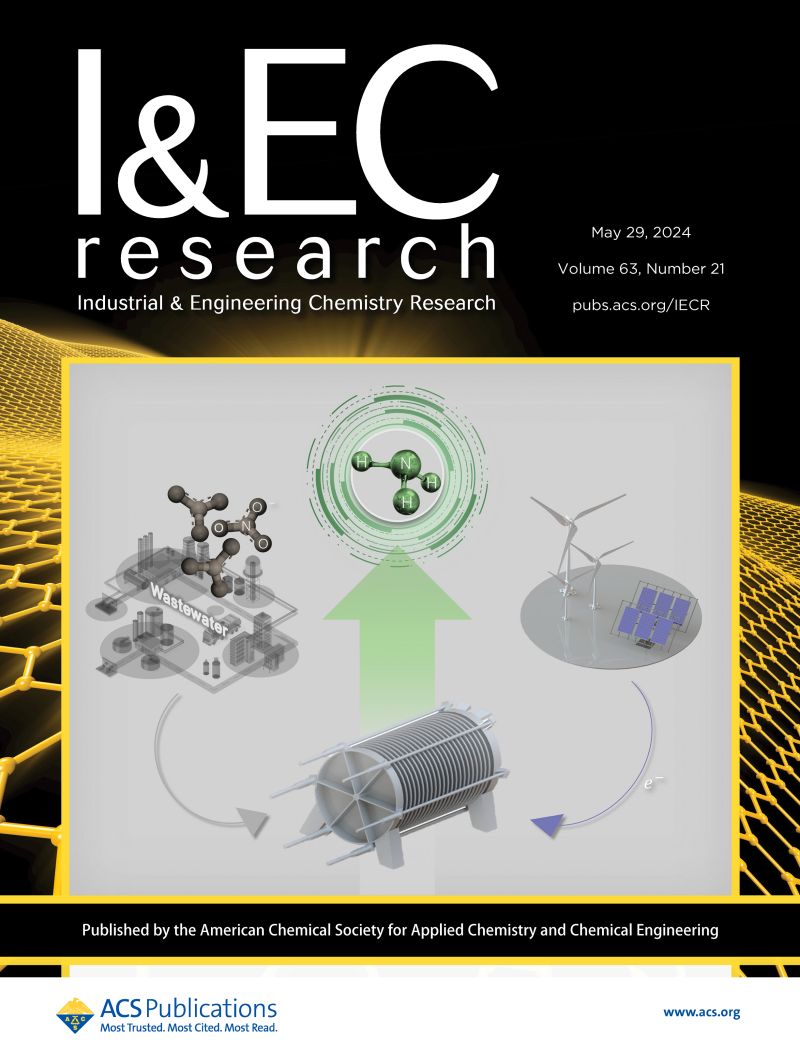化工过程的广义全局自优化控制:第二部分目标导向控制变量学习方法
IF 3.9
3区 工程技术
Q2 ENGINEERING, CHEMICAL
引用次数: 0
摘要
自优化控制(SOC)旨在通过明智地选择受控变量(CV)来维持接近最优的过程运行。在这一系列工作中,提出了广义全局 SOC(g2SOC)方法,它将 SOC 的概念扩展到整个操作空间,并使用一般非线性函数来设计 CV,而不是线性组合。在本系列著作的第一部分,基于对完美自优化 CV 存在性的理论分析,提出了 g2SOC 的两种数值方法:基于优化的方法和基于回归的方法。前者设计的 CV 性能较好,但对于大规模问题通常不可行。在本文中,我们提出了一种称为目标引导控制变量学习(OGCVL)的算法,它结合了两者的优点,并具有更好的可扩展性。OGCVL 是为高效的 CV 设计而提出的,它无缝集成了符号计算和数值计算技术。最后,通过两个数值示例验证了 OGCVL 方法的有效性。这两个例子都表明,OGCVL 方法能够在保持计算效率的同时获得良好的结果,而且在大规模问题中也是可行的。本文章由计算机程序翻译,如有差异,请以英文原文为准。

Generalized Global Self-Optimizing Control for Chemical Processes: Part II Objective-Guided Controlled Variable Learning Approach
Self-optimizing control (SOC) aims to maintain near-optimal process operation by judiciously selecting controlled variables (CVs). In this series of work, the generalized global SOC (g2SOC) approach is proposed, which extends the concept of SOC to the whole operation space and uses general nonlinear functions to design CVs instead of linear combinations. In the first part of this series work, two numerical approaches for g2SOC are proposed: the optimization-based approach and the regression-based approach, based on a theoretical analysis of the existence of perfect self-optimizing CVs. The CVs designed by the former perform better, but are usually infeasible for large-scale problems. In this paper, we propose an algorithm called objective-guided controlled variable learning (OGCVL) that combines the advantages of both and has a better scalability. OGCVL is proposed for efficient CV design that seamlessly integrates symbolic and numerical computation techniques. Finally, the effectiveness of the OGCVL method is verified in two numerical examples. Both examples illustrate show that the OGCVL method is able to achieve good results while maintaining computational efficiency and is also feasible in large-scale problems.
求助全文
通过发布文献求助,成功后即可免费获取论文全文。
去求助
来源期刊

Industrial & Engineering Chemistry Research
工程技术-工程:化工
CiteScore
7.40
自引率
7.10%
发文量
1467
审稿时长
2.8 months
期刊介绍:
ndustrial & Engineering Chemistry, with variations in title and format, has been published since 1909 by the American Chemical Society. Industrial & Engineering Chemistry Research is a weekly publication that reports industrial and academic research in the broad fields of applied chemistry and chemical engineering with special focus on fundamentals, processes, and products.
 求助内容:
求助内容: 应助结果提醒方式:
应助结果提醒方式:


